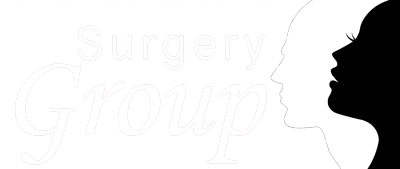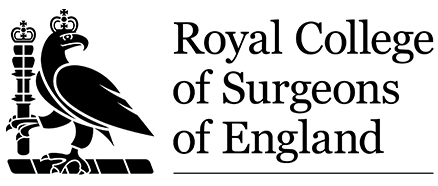Hair transplants are becoming one of the most sought-after operations for men and women over the age of 30. In the United Kingdom, over 40 million adults suffer from alopecia, and over 650 000 of those adults opt for hair transplants to mitigate the hair loss. It’s a perfectly normal surgery to undergo in today’s world, and it’s fast-growing in popularity. Balding, having a receding hairline or going thinner on top is no longer something we just have to accept.
However, like any operation, a hair transplant requires proper aftercare. These tips tell you what not to do post-op so that you can enjoy your new, thicker, fuller head of hair to its full potential!
Don’t get dehydrated
Doctors recommend drinking as much water as possible following any type of surgery, as staying hydrated is key to a fast and healthy recovery process. Patients who increase their water intake by 10% will flush the anaesthesia from their body far faster and will feel a reduction in the side effects of these drugs.
Many people take painkillers that can lead to constipation during recovery, and staying hydrated can aid the digestive system and keep things moving.
Avoiding coffee, sugary drinks and any other liquids or foods that can contribute to dehydration is essential.
Don’t sit in the sun or ice the scalp
After an operation, the best way to look after your hair follicles is to keep the elements that directly touch your scalp as neutral as possible. This means that it’s best to avoid applying ice packs directly to your head, even if you’re feeling pain and discomfort following surgery.
The same goes for direct sunlight, and patients should generally avoid applying any sort of heat treatment to the scalp to get rid of itchiness. The best way to mitigate the effects of the surgery is to apply conditioner and other approved hair treatments to the scalp. Extreme heat and cold are a definite no.
Don’t drink alcohol
Even if you only have a glass of wine with dinner or the occasional beer, you need to press pause on imbibing any alcohol after a hair transplant operation. Alcohol slows down the recovery process as it’s a dehydrator.
Consuming alcohol during the post-op phase will only increase discomfort and raise blood pressure to a dangerous level, depending on how much the patient consumes. Waiting until the doctor gives you the go-ahead to drink alcohol again is imperative to the healing process and for your overall health.
Don’t touch or wash your hair
For the first 48 hours following a transplant operation, patients should abstain from touching, scratching and scrubbing their scalp as much as possible. It’s best to completely avoid touching the area if possible, as this reduces the chance of transferring bacteria or irritating the site of the grafts.
Washing your hair should be avoided entirely for the first few days, as this allows the follicles to receive some undiluted recovery time. After that, light washing and conditioning is a good idea to keep the area clean.
Don’t use harsh hair products or dyes
After a transplant, you’ll be given recommended shampoo and conditioner that’s specially formulated for the area. It’s crucial that you use these products and not your usual hair care products, as they may contain harsh ingredients that can irritate the transplant site.
It’s also best to avoid dyeing your hair. Although dyeing it directly after the surgery may not have immediate adverse effects, the harsh chemicals found in most dyes will damage the transplanted follicles in the long term.
Don’t sleep flat on your back
After a hair transplant operation, you need to avoid lying flat on your back with your head sinking into a soft pillow. Doctors recommend that patients sleep with their heads in an elevated position, preferably on a reclining chair. This may seem impossible, and many people worry that their schedules and sleeping patterns will be negatively affected.
However, sleeping in an upright position is necessary to prevent the head from swelling. It will also speed up the recovery process, as hair follicles will not be disturbed during sleep. Tossing, turning and moving your head around on a pillow could dislodge your grafts following the transplant.
Don’t do any heavy physical exercise
It’s recommended that you avoid all forms of exercise for at least a couple of weeks following the operation. In general, patients who go through any type of intensive surgery involving some sort of anaesthetic should try to rest and relax for a week or two thereafter. This is important simply because it speeds up the early stages of the recovery process.
Light to moderate exercise that gets the heart beating and the blood flowing a little bit faster is fine as long as you don’t perspire. Light walks, yoga and breathing exercises are all practices that could help with long-term recovery.
Don’t wear a hat
While the grafts, plugs or transplant area may look a little strange at first, patients must resist the temptation to cover it with a hat. If you feel a bit embarrassed, just think of the end results!
No matter how tight or loose-fitting, wearing a cap, beanie, bucket hat or any other headgear is a no-no. A hat will move on the head and irritate the hair follicles, causing potential issues with the transplant.
Eat unhealthy food
Recovery following a hair transplant is all about staying healthy and hydrated to allow the follicles to recover. Certain foods can decrease your overall heart health and slow down the pumping of blood around your body.
Good blood pressure levels are essential for allowing your scalp to get all the nutrients it requires for recovery and consuming large quantities of fast food, fatty foods and other unhealthy eating habits could hamper the process rather drastically.
The bottom line
A hair transplant may not seem like major surgery, and in the greater scheme of things, it isn’t. However, looking after your newly transplanted hair will give it the best chance of growing in thick and healthy, and you’ll speed up the recovery process. If you avoid the don’ts, you can enjoy your new look sooner rather than later!



